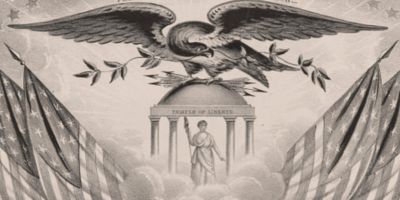Prime sponsor for Spotlight Lexington has despicable global record
By Ian Epperson
How many times have you heard the phrase, “the World Equestrian Games are coming?” It’s perhaps the single phrase that can sum up the past year in Lexington. Everyone is getting ready for the Games. We’ve fast-tracked the streetscape improvements downtown. Business owners and managers have been attending training sessions to help them cater to international customers. The Herald-Leader churns out several articles a week regarding the WEG. The city is even putting together a festival entirely for the games.
Spotlight Lexington, the city’s festival during the games, has Coca-Cola as one of its primary sponsors. The choice of Coke as the exclusive soft drink and non-alcoholic beverage provider of Spotlight Lexington should be a concern to social and economically conscious Lexingtonians. Coke has willingly turned a blind eye to the violent repression of its unionized workforce in South America. As well, its business model in India includes monopolizing water sources for use in its bottling factories, water sources that communities depend on. The result has been polluted water and poisoned Coke products.
Coke’s Killer History
Coca-Cola is one of the few companies whose branding has been so successful that it has transcended national boundaries and language barriers to become a global household name. It’s this relentless branding that has landed it comfortably among the ranks of the 100 largest companies on earth at 73rd on the Fortune 500 list.
But, it wasn’t an easy trip to the top for Coke. The King of Soft Drinks has many skeletons in the closet and bodies under the floorboards.
In Colombia, workers at Coke’s bottling plants have claimed that the company is trying to break the union and has, for years, waged a campaign of violence and intimidation against its unionized workforce. The workers and their family members have faced kidnapping, torture, and murder at the hands of paramilitary groups that work in collusion with the managers of Coca-Cola bottling plants.
In 2004, a group led by New York City Councilman Hiram Monserrate heard about the allegations and went to Columbia to investigate. The delegation reported some disturbing findings. In addition to nine murders, they found 170 other documented cases of human rights abuses carried out by paramilitary groups on behalf of plant managers.
The delegation’s report, which is available online, describes the continuing violence and Coke’s complicity. The group “talked to two survivors of the paramilitaries’ campaign to destroy the union in Carepa, in the Uraba region, in 1995-1996. It was here that union leader Isidro Gil was shot seven times by paramilitary gunmen inside the Coke bottling plant. Hours later, the union’s office in town was burned down. And two days after that, paramilitaries returned to the plant, lined up all the workers, presented them with prepared letters resigning their union membership, and made them sign under threat of death. The letters had been written and printed on the company’s computers.”
The New York City delegation, after hearing countless accounts of violence against union workers and their families, visited the bottling plants in question. The delegation recorded that “there are troubling eyewitness accounts of paramilitaries having unrestricted access to Coke plants and of paramilitaries consorting with plant managers.”
The delegation’s findings were that “it is impossible to avoid the conclusion that paramilitaries in Coke’s bottling plants were there with the full knowledge and/or tacit approval of the company.”
In response to these allegations, Coca-Cola’s headquarters in Atlanta issued a statement saying that it had no involvement in the violence: “Based on internal investigations conducted by our company and by our bottling partners, we are confident that allegations the bottlers engaged paramilitaries to intimidate trade unionists are false.” Yet, Coke has provided no evidence that any internal investigation into the matter has taken place. I can only think of two reasons that they would withhold details of their internal investigation. Either the methodology was so flawed that it would invite further questioning, or no investigation actually took place.
Critics of Coke argue that, no matter the source, the violence and the murders have conveniently helped the company by eliminating union organizers and agitators in its bottling plants.
Coke and coal: kissing cousins
As Kentuckians, many of us are familiar with stories of the brutal repression of union workers by powerful coal companies in eastern Kentucky during the 20th century. The labor struggles in eastern Kentucky, known as the Coal Wars, resulted in the deaths of many hardworking miners and their family members. We should not want to see this cycle of violence repeat itself anywhere in the world.
In addition to the brutal violence perpetrated by coal companies in the 20th century, the coal industry continues to destroy ecosystems and ravage the communities in which they operate by dumping waste, including heavy metal toxins into nearby streams. In fact, according to Mountain Justice Summer, the Kentucky River once ran clear most of the year until the headwaters in eastern Kentucky were filled with waste from strip mining operations.
On the other side of the world, farmers in India’s drought-prone areas face a similar struggle; however, instead of opposing powerful energy companies, their fight is with Coke. Farmers in these Indian regions claim that Coke’s bottling plants, which use hundreds of millions of liters of water from local groundwater sources, have intensified water shortages while dumping waste in nearby streams and rivers. In other words, the farmers argue that Coke monopolizes one source of water to make its products and then contaminates the rest with its waste.
Coke has also been accused of allowing high levels of pesticides — including DDT — to remain in their products in India. The company knows the chemicals are harmful. After all, it’s a U.S. company and DDT was outlawed here in 1972 because it causes cancer. Coke, however, takes advantage of lax safety standards in India, refusing to change its production methods to avoid using these dangerous chemicals.
These are the reasons I boycott Coke. Simply put, I don’t want to give my money to a company that hurts people.
What most upsets me is that these aren’t business decisions the company needs to make in order to stay in business. Coke could easily act responsibly, paying its workers well and providing safe and dignified working conditions while remaining an obscenely profitable company — just slightly less obscenely profitable. It’s a case of old-fashioned greed.
A New Economics
What we need in economic policy in the 21st century is a Federal Trade Commission that can hand out penalties to companies like Coca-Cola, penalties that actually fit their crimes. If a company official makes a decision that intentionally or by neglect results in loss of life, that official needs to see jail time. If a company repeatedly and willfully violates safety and labor regulations, then that company’s corporate charter should be revoked (the corporate equivalent of the death penalty), and its assets distributed among shareholders and anyone harmed by its actions.
Unfortunately, we aren’t likely to see rich and powerful companies treated like the rest of us anytime soon. So, as citizens we must take matters into own hands, within our own spheres of influence. Namely, we must do our part to make sure these big companies don’t get any bigger or any more powerful on our dime. We boycott.
But it’s not enough to simply boycott individual companies and spend our money with companies that treat their people, communities, and ecosystems well.
Our prevailing economic model not only approves of, but actively encourages, the cut-throat, slash and burn tactics of modern mega-corporations. The prevailing wisdom of American capitalism tells us that deregulation, privatization, and near-nothing taxes for the extremely wealthy are healthy economic measures. Essentially, we’re told that we should be extremely generous to the wealthy and to the largest corporations, all the while blindly trusting that they will do right by us in the form of creating well-paying jobs with dignified working conditions.
But these corporations have betrayed our trust. We watch well-paying factory jobs disappear, and sweatshop jobs take their place in the developing world. I want to emphasize this: well-paying jobs are not moving; they are disappearing as horrible ones take their place in the developing world.
Help get city off Coke
We need to fundamentally rethink our beliefs regarding economic success and well-being. We must stop thinking only of our success, our wants, and our needs. We must also consider how our actions effect others.
This fall offers an opportunity. When the King of Soft Drinks comes to town and hangs its name over the Spotlight Lexington festival, it will be a chance to expose the dirty secrets that are hidden behind tens of millions of dollars in marketing and brand development. The sponsorship gives us an opportunity to tell the whole world about Coke’s misconduct in, well, the rest of the world.
We’re hoping to recruit like-minded folks to come out and lend a hand as we’re trying to do our part to build a more just, more compassionate, more sane economic model. If you’d like to know more about getting involved in the Coca-Cola boycott, send an email to agapeatloudon@gmail.com. We will be organizing an educational session shortly before the festival for those who are interested in the boycott and awareness raising about Coke’s unjust practices.
Ian Epperson is the author of Love Songs for the Apocalypse.




Leave a Reply